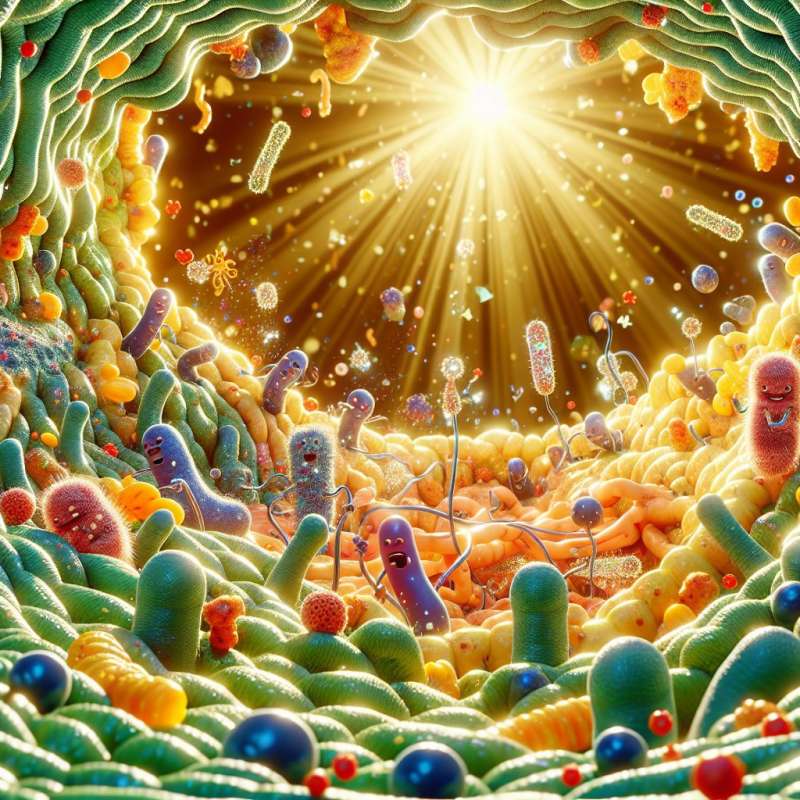
Introduction to Gut Flora
Our gut is home to trillions of bacteria, collectively known as the microbiota. These tiny organisms play a crucial role in digestion, immunity, and overall health.
Bacteria's Role in Digestion
Gut bacteria aid in breaking down complex carbohydrates, synthesizing vitamins and minerals, and even directing calories towards different uses within our body.
Immune System Interplay
Surprisingly, about 70% of our immune system is in the gut. Microbiota train our immune cells, teaching them to distinguish between foreign invaders and our own cells.
Microbiota and Mental Health
Recent discoveries show a 'gut-brain axis' where gut bacteria influence neurotransmitters and hormones, impacting mood, stress levels, and possibly contributing to anxiety and depression.
Dietary Impact on Microbiota
Diet directly alters gut flora composition. Fibers, polyphenols, and fermented foods promote beneficial bacteria, while sugar and fats can encourage harmful bacterial growth.
Antibiotics and Gut Cleanup
Antibiotics can be double-edged swords; they kill pathogens but also beneficial bacteria. Post-antibiotic periods are critical for gut flora recovery and diversity restoration.
Probiotics and Prebiotics
Probiotics introduce beneficial bacteria, while prebiotics provide the food they need to thrive. Together, they're an effective duo for maintaining a healthy gut microbiome.
What percentage of the immune system is gut-based?
About 70%
Around 50%
Nearly 80%
Company